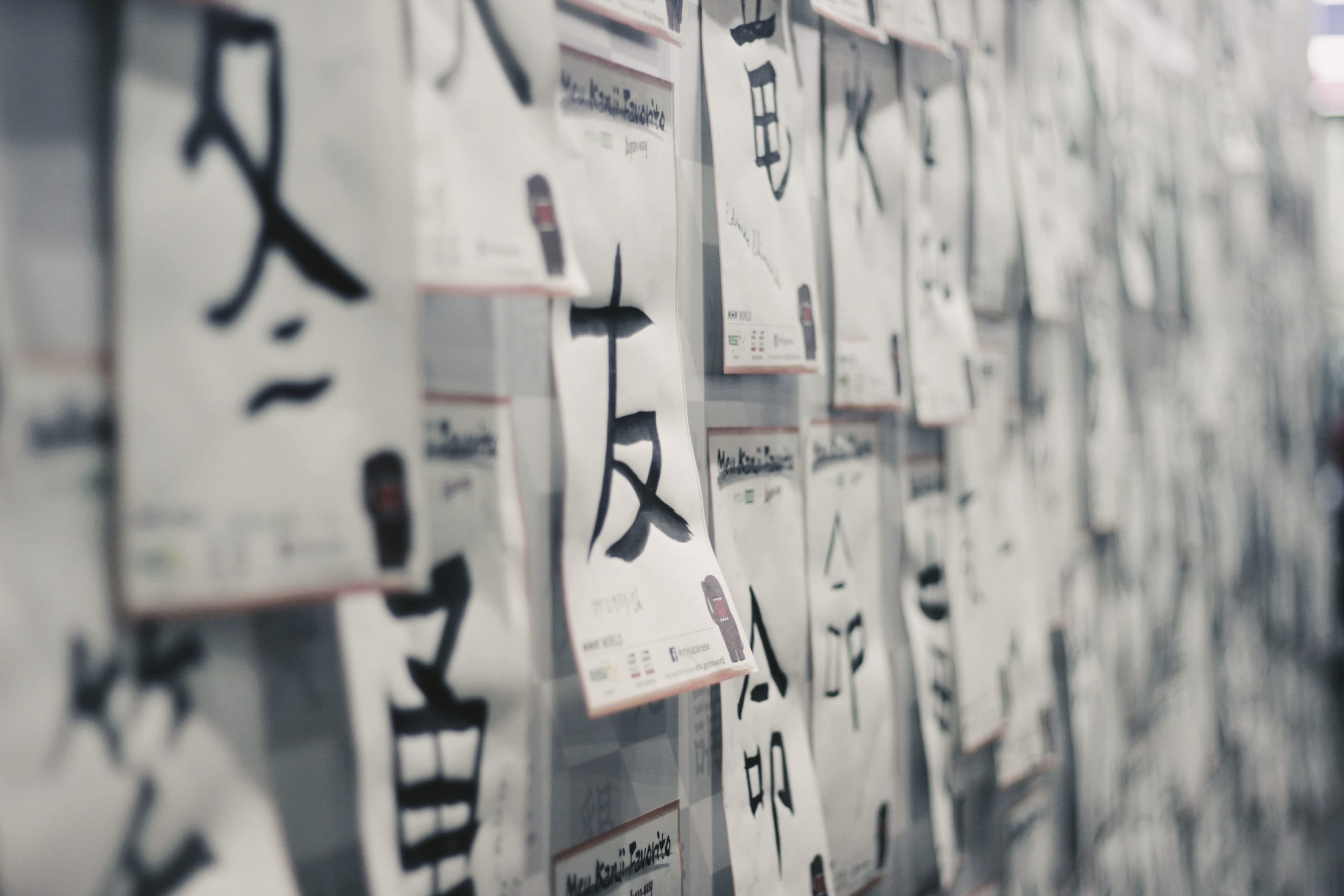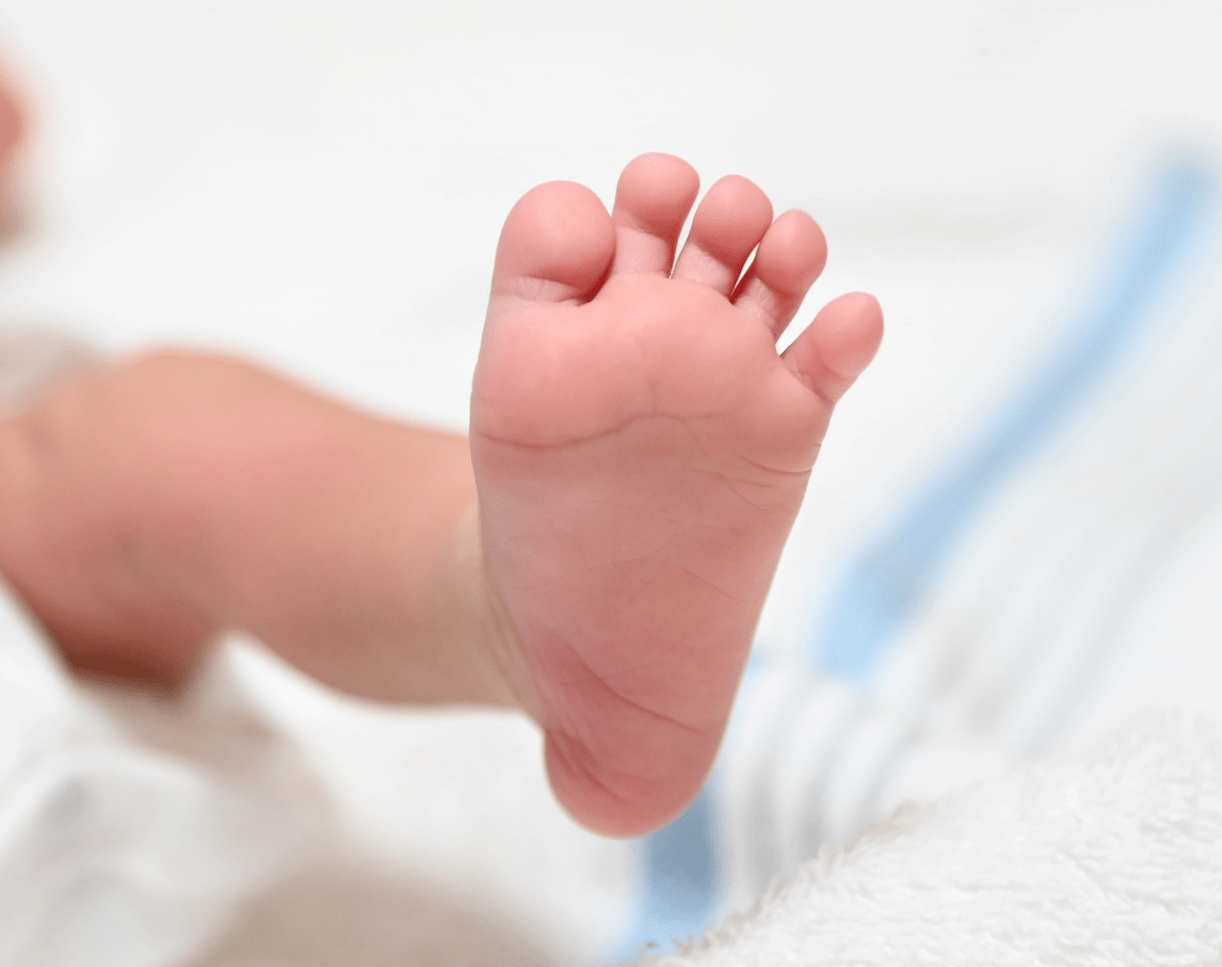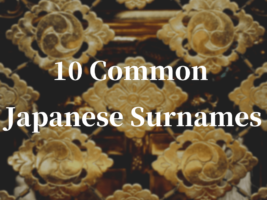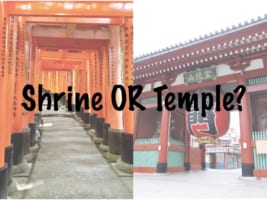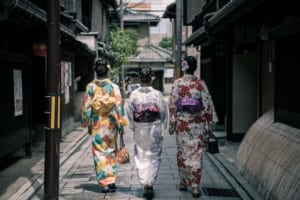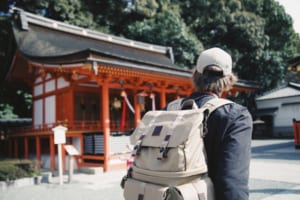10 Popular Japanese Boy Names
First name trends for boys in Japan

Deciding a name for your child is one of the most important decisions you need to take as a parent. This is the same, no matter what part of the world you live in.
In many cultures, there are names that are popular or trending depending on the era. This is also the case in Japan.
In this article, I will introduce to you 10 common Japanese first names for boys. These first names have been popular during certain times in Japan.
▽Here are 10 common Japanese girl names!▽
How first names are decided in Japan
Before going to the list, let me explain to you how first names are usually decided in Japan. There are several factors that people tend to think about when making this important decision for their children.
- Meaning of the name: The name represents the parents’ wishes for the future of the child. It can be based on nature such as Kai (meaning Ocean) or Daiki (meaning big tree). It could also be based on someone who’s important to the parents. A name can have different meanings depending on the Kanji (漢字) that is used. For example, the name “Kenji” can be written as either “健治” or “賢二”. Some people decide to not use Kanji.
- How it sounds: Also important is how it sounds when you say the name out loud. Contrary to the first point, there can be a Kanji that can be read in different ways. for example, the name ”裕樹” can be read as either “Yuuki” or “Hiroki”.
- Make sure it’s not too old not too new: In Japan, there is this concept of “Kirakira name” and “Shiwashiwa name”. In simple terms, Kirakira name refers to names that are not common, while Shiwashiwa name refers to names that are not used so much anymore.
- Stroke number: There is an old tradition saying the number of pen strokes that takes for writing a name can have both good or bad influences on your child. Not everyone takes this into consideration, but a good percentage of parents are said to make sure the stroke number is good.
From here, I will share with you 10 of the most popular Japanese boy names. The order of the names appearing on this list is from older to newer popular names.
1. Hiroshi
The first name on our list for first names for boys is Hiroshi. This is a name that was most popular between the 1950s and 1960s.
The most common Kanji used for this name is “浩”. This kanji represents water flowing rapidly and strongly. Therefore, you can see how parents choose this name hoping that their son grows up to become strong like flowing water. Other ways to write it are “博之” and “弘”.
A similar name is Tsuyoshi (剛).
2. Makoto
Next on our list is the name Makoto. this is a name that was most popular Between the 1950s and 1980s.
The most common Kanji used for this name is “誠”. The kanji “誠” means “the truth”. So you can see how there is hope behind this name for this boy to grow up and be true to himself and be honest in life. Another way to write Makoto is “亮”.
A similar name would be Manabu (学).
3. Daisuke
Daisuke is a name that was most popular in the 1970s, 1980s, and 1990s.
The most common Kanji used for this name is “大輔”. This is a combination of the kanji 大 which means “big” and the kanji 輔 which means “to support” or “to help”. In other words, his parents want this boy to be big and strong so he can help others in life. Other ways to write Daisuke include “大介”, “大佑”, “大助”.
A similar name is Kenichi (健一)
4. Takuya
The next name on this list is Takuya. this is a name that was most popular in the 1980s and 1990s.
The most common Kanji used for this name is “拓也”. Tha kanji 拓 means “to open a way” or “to develop”, meaning there’s hope behind this name that this boy can find his way and become a good leader in life. Other ways to write it include “拓哉” and “卓也”.
Similar names are Tatsuya (達也) and Kazuya (和也).
5. Shota
This is a name that was most popular between the 1980s and 2000s.
The most common Kanji used for Shota is “翔太”. The kanji 翔 means “to fly high” and the kanji 太 means “thick” or “unmovable”. People name their child Shota with the hope that this boy can be successful and strong. Other ways to write this name include “正太” and “将太”.
A similar name to Shota would be Kenta (健太).
6. Daiki
Next, on our list is the name Daiki. This is a name that was most popular in the 1990s, 2000s, and 2010s.
The most common Kanji used for this name is “大輝”. The kanji 大 means “big” and the kanji 輝 means “to shine brightly”. Therefore you can see how parents name their son Daiki, hoping this boy becomes big and that he has a bright future. Other ways to write this name are “大樹” and “大喜”.
A similar name would be Naoki (直樹).
7. Itsuki
Itsuki is the next name on our list. This is a name that was most popular between the 2010s and now.
The most common Kanji used for Itsuki is “樹”. The kanji 樹 means “large tree”. There is hope from the parents for this kid to become large and strong like a tree. Another way to write this name is “一輝”.
8. Hiroto
This is a name that was most popular between the 2000s and now.
The most common Kanji used for this name is “大翔”. The kanji 大 means “big” and the kanji 翔 means “to fly high”. Similar to the name Shota, people name their child Hiroto with the hope that this boy can be successful and strong. Other ways to write Hiroto include “弘人” and “浩人”.
Similar names are Yuto (優斗) and Kaito (海斗).
9. Aoi
This is a name that has been most popular between the 2010s and now. It is still a very popular name for boys. Although, depending on the Kanji, it can also be a name for a girl.
The most common Kanji used for this name is “蒼”. This kanji represents “growth”. It is especially popular lately due to the international situation with health issues. Parents want their children to grow and be strong.
10. Ren
And lastly, we have the name Ren. This is a name that was most popular between the 2000s and now.
The most common Kanji used for this name is “蓮”. the kanji 蓮 means “Lotus”. Just how a lotus can grow in dark ponds to have a beautiful flower, this name include the hope from the parents for their son to be able to live strongly and beautifully, even if the situation is not nice.
A similar name to Ren is Sora (蒼空).
I hope you enjoyed this article. Names are an important part of a culture, and it is no exception in Japan. If you liked this article and want to know more about Japanese culture, be sure to check out the following articles as well!
▽Related Articles▽
▼Editor’s Picks▼
Written by
Born and raised in Costa Rica, I started living in Tokyo from college. I love traveling within Japan & around the world. Since I wasn’t born in Japan, I know the cultural impact that you can get when visiting Japan for the first time and what you might be worried about before your trip. And I’ve lived long enough to somewhat understand the nuances of the Japanese culture that make this country such an attractive place to visit. Hopefully I can provide to you both the information you’re looking for and the information you didn’t know you needed to know.






